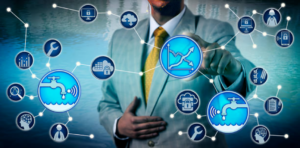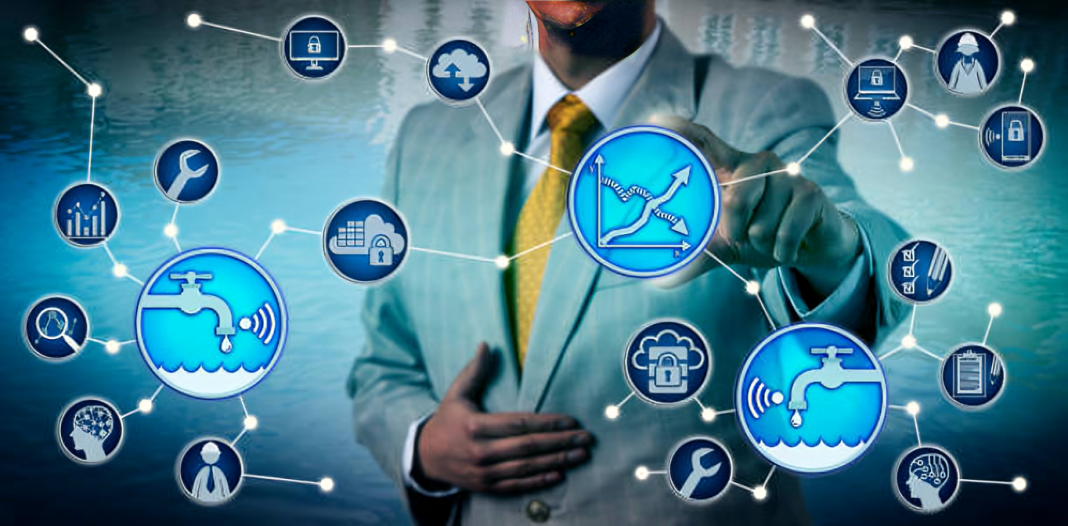Improving Customer Service in the Water Purifier Sector: Leveraging the Power of CRM

Introduction
In the water purifier sector, delivering exceptional customer service is vital for building customer loyalty and satisfaction. With the ever-increasing customer expectations and the competitive landscape, water purifier companies need effective tools to streamline their customer service processes. This is where Customer Relationship Management (CRM) comes into play. In this blog post, we will explore how water purifier companies can leverage the power of CRM to enhance their customer service efforts, streamline complaint management, and ultimately, boost customer satisfaction.
Understanding CRM for Water Purifier Companies
CRM is a software solution that enables companies to manage and analyze customer interactions and data throughout the customer lifecycle. For water purifier companies, a CRM system tailored to their unique needs can provide valuable functionalities to improve customer service. It acts as a centralized hub, capturing customer information, managing complaints, and facilitating communication between customers and support agents.
Streamlining Water Purifier Complaint Management
One of the key benefits of CRM for water purifier companies is its ability to streamline complaint management. With a dedicated Complaint Management CRM, companies can efficiently handle customer complaints from multiple channels, such as phone calls, emails, and social media. The CRM system enables support agents to log and track complaints, ensuring no customer inquiry falls through the cracks. By centralizing complaint management, water purifier companies can organize and prioritize customer issues, leading to faster resolution times and improved customer satisfaction.
360-Degree View of Water Purifier Customer Interactions
CRM provides a 360-degree view of customer interactions, allowing water purifier companies to have a comprehensive understanding of their customers. Through the CRM system, support agents can access customer profiles, previous interactions, and purchase history. This information empowers agents to provide personalized support and tailored solutions to each customer’s specific needs. By leveraging this customer intelligence, water purifier companies can deliver a more personalized and satisfying customer experience.
Effective Communication and Collaboration
CRM facilitates effective communication and collaboration among support agents and other teams involved in the customer service process. Internal notes and updates can be shared within the CRM, ensuring that everyone is informed about the status and progress of each customer inquiry. Collaboration features, such as discussion boards and real-time messaging, enable support teams to work together seamlessly, share knowledge, and resolve customer issues efficiently. This enhanced communication and collaboration results in improved response times, accurate information sharing, and ultimately, better customer service.
Automation and Workflow Optimization
CRM offers automation and workflow optimization features that can streamline customer service processes. Repetitive tasks, such as ticket routing, acknowledgment emails, and follow-up reminders, can be automated, allowing support agents to focus on complex issues and providing personalized assistance to customers. By automating routine tasks, water purifier companies can improve efficiency, reduce errors, and enhance the overall customer service experience.
Data Analytics for Continuous Improvement
CRM provides water purifier companies with valuable data analytics capabilities. By analyzing customer data and complaint trends, companies can identify recurring issues, measure customer satisfaction, and make data-driven decisions to improve their products and services. CRM’s reporting and analytics features offer insights into customer preferences, allowing companies to proactively address potential issues and continuously enhance their customer service offerings.
The Challenges of Customer Service in the Water Purifier Sector
Providing exceptional customer service is a key priority for businesses in every industry, and the water purifier sector is no exception. However, this sector faces unique challenges that can make delivering outstanding customer service more complex. In this section, we will explore some of the challenges faced by water purifier companies and how they can overcome them to meet rising customer expectations.
1. Technical Complexities: Water purifiers are intricate systems with advanced technologies and components. Addressing technical issues and providing accurate troubleshooting guidance can be challenging for customer support agents. They need a deep understanding of the product specifications, functionalities, and potential problems that customers may encounter. Failure to address technical complexities effectively can lead to customer frustration and dissatisfaction.
2. Diverse Customer Needs: Customers in the water purifier sector have diverse needs and preferences. Some may require solutions for residential use, while others may seek purifiers for commercial or industrial purposes. Customers may have varying water quality concerns, such as removal of specific contaminants or the need for specialized filtration methods. Meeting these diverse needs requires personalized support and tailored solutions.
3. Rising Customer Expectations: With the advent of technology and the availability of information at their fingertips, customers have higher expectations when it comes to customer service. They expect quick response times, personalized interactions, and seamless support experiences. Meeting these expectations is crucial for water purifier companies to retain customers and build long-term relationships.

The Role of CRM in Improving Customer Service
Customer Relationship Management (CRM) systems play a vital role in addressing the unique challenges faced by water purifier companies and enhancing customer service. CRM systems provide a centralized platform for managing customer interactions, data, and support processes. Let’s explore how CRM systems can improve customer service in the water purifier sector.
1. Streamlining Support Processes: CRM systems allow water purifier companies to streamline their customer support processes by providing a centralized hub for managing customer inquiries and complaints. Support agents can log, track, and prioritize customer issues effectively, ensuring that no inquiry falls through the cracks. By automating workflows and standardizing support procedures, CRM systems reduce response times and improve the overall efficiency of customer service.
2. Personalized Customer Interactions: CRM systems enable water purifier companies to store and access customer data, including past interactions, purchase history, and preferences. This information empowers support agents to provide personalized customer interactions. They can address customers by name, understand their specific needs, and offer tailored solutions. Personalization enhances the customer experience, fosters trust, and strengthens the customer-company relationship.
3. Knowledge Base and Self-Service Options: CRM systems can include a comprehensive knowledge base that houses troubleshooting guides, product manuals, and frequently asked questions (FAQs). This knowledge base can be made accessible to customers through self-service portals, allowing them to find answers to common issues independently. Empowering customers with self-service options not only saves time for both customers and support agents but also enhances customer satisfaction and loyalty.
4. Collaboration and Communication: CRM systems facilitate collaboration and communication among support teams, allowing them to work together more efficiently. Agents can share information, seek assistance from subject matter experts, and collaborate on resolving complex customer issues. This level of collaboration ensures that support agents have access to the expertise and resources they need to provide accurate and prompt assistance to customers.
5. Data Analytics and Insights: CRM systems capture valuable customer data and provide robust analytics capabilities. Water purifier companies can analyze customer interactions, complaints, and feedback to gain insights into common issues, trends, and areas for improvement. These insights enable companies to make data-driven decisions, identify opportunities for product enhancements, and proactively address customer concerns. By continuously analyzing customer data, companies can refine their support processes and deliver an exceptional customer experience.
6. Proactive Customer Engagement: CRM systems allow water purifier companies to engage with customers proactively. By setting up automated alerts and notifications, companies can reach out to customers for follow-ups, product maintenance reminders, or to offer additional services. Proactive engagement demonstrates the company’s commitment to customer satisfaction and helps prevent potential issues before they arise. It also provides an opportunity to upsell or cross-sell products or services, further enhancing the customer experience.
7. Integration with Other Systems: CRM systems can be integrated with other systems within the organization, such as inventory management or service scheduling. This integration ensures seamless data flow and enables support agents to access real-time information about product availability, service appointments, or order status. By integrating CRM with other systems, water purifier companies can improve coordination, streamline processes, and provide accurate and up-to-date information to customers.
8. Mobile Accessibility: With the increasing use of mobile devices, having a mobile-friendly CRM system is crucial for water purifier companies. Mobile accessibility allows support agents to access and manage customer complaints on-the-go, improving responsiveness and customer satisfaction. Agents can quickly respond to inquiries, access customer information, and provide support from anywhere, ensuring a seamless customer experience.
9. Continuous Improvement: CRM systems facilitate continuous improvement in customer service by capturing customer feedback and tracking the resolution of complaints. Companies can analyze customer satisfaction ratings, response times, and complaint resolutions to identify areas for improvement. This data-driven approach helps water purifier companies identify recurring issues, implement process enhancements, and deliver better customer service over time.
Leveraging the power of CRM is essential for water purifier companies looking to improve their customer service efforts. By implementing a tailored CRM solution, companies can streamline complaint management, gain a comprehensive view of customer interactions, enhance communication and collaboration, optimize workflows, and leverage data analytics for continuous improvement. CRM empowers water purifier companies to deliver exceptional customer service, build customer satisfaction, and differentiate themselves in the competitive water purifier sector.
By streamlining complaint management, water purifier companies can ensure that customer inquiries are handled promptly and efficiently. The centralized nature of CRM allows support agents to track and manage complaints from various channels, ensuring that no customer concern goes unnoticed. This streamlined process leads to faster resolution times, which ultimately translates into improved customer satisfaction and loyalty.
Moreover, CRM provides a 360-degree view of customer interactions, enabling support agents to deliver personalized and tailored solutions. Access to customer profiles, previous interactions, and purchase history empowers agents to understand the unique needs of each customer and provide relevant recommendations and assistance. This level of personalization enhances the customer experience and fosters long-term relationships with customers.
Effective communication and collaboration are essential in delivering exceptional customer service. CRM facilitates seamless communication among support agents and other teams involved in the customer service process. Through internal notes, updates, and collaboration features, such as discussion boards and real-time messaging, support teams can work together efficiently, share knowledge, and resolve customer issues effectively. This collaborative approach ensures that customers receive accurate and consistent support, regardless of the support agent they interact with.
Automation and workflow optimization are key features of CRM that can significantly improve customer service efficiency. By automating routine tasks and processes, such as ticket routing, acknowledgment emails, and follow-up reminders, support agents can focus on addressing complex customer issues and providing personalized assistance. Automation not only saves time but also reduces the chances of human error, resulting in improved response times and customer satisfaction.
Data analytics is another powerful aspect of CRM that empowers water purifier companies to make data-driven decisions and continuously improve their customer service offerings. By analyzing customer data and complaint trends, companies can gain insights into common issues, measure customer satisfaction levels, and identify areas for improvement. This data-driven approach allows companies to proactively address customer pain points, enhance product and service offerings, and deliver superior customer experience.

Conclusion
In conclusion, leveraging the power of CRM is essential for water purifier companies aiming to improve their customer service and enhance customer satisfaction. By streamlining complaint management, providing a comprehensive view of customer interactions, facilitating effective communication and collaboration, automating workflows, and utilizing data analytics, companies can elevate their customer service efforts to new heights. CRM empowers water purifier companies to deliver personalized and efficient support, exceed customer expectations, and cultivate long-term customer relationships. With the ever-increasing competition in the water purifier sector, embracing CRM becomes a strategic imperative for companies seeking to thrive in the industry.
